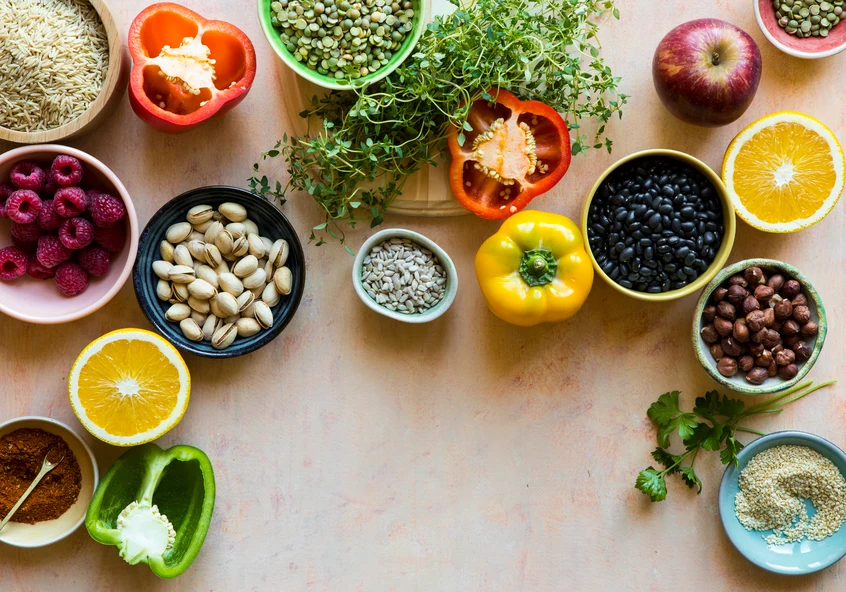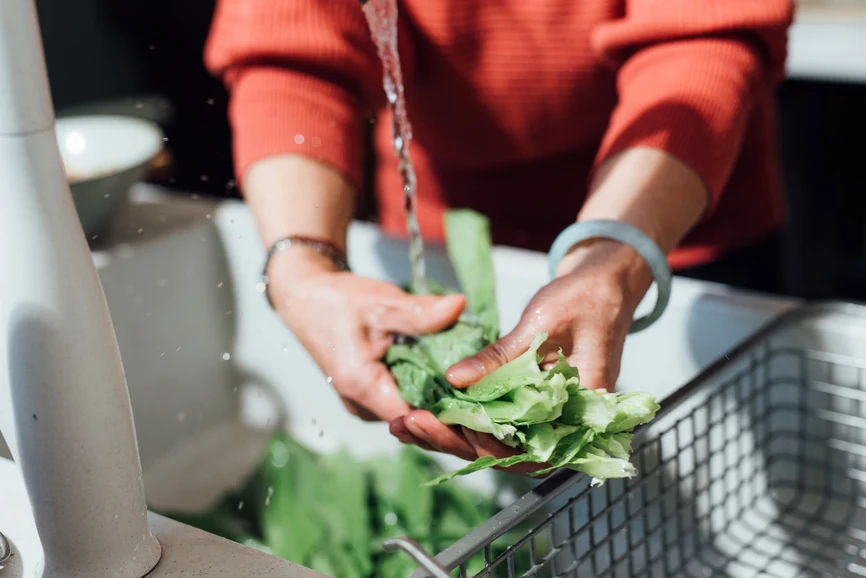Can You Eat Your Way to Better Gut Health?
3 minute read

When it comes to gut health, it’s about much more than being “regular.”
As scientists and researchers dig deep into how the gut biome works, we are all learning more about its importance in supporting our immune system, absorbing the vitamins, minerals and fatty acids our body needs from food — and oh, reducing our risk of chronic diseases like cancer and type 2 diabetes.
Not too shabby, microbiota.
On the flipside, poor gut health manifests just as powerfully, offering up a vast array of obvious symptoms, like heartburn, gas, bloating, nausea, vomiting and constipation, as well as less obvious ones, like mood swings and rashes, not to mention a weak immune system.
Your gut health can take a turn for the worse for many reasons, among them overdoing it with alcohol, caffeine, fatty fried foods, certain prescription medications (including some antibiotics), and processed foods and meats.
The good news is that you can improve your gut health by making some simple real-life adjustments to get you back on track. Here’s how.

Up your fiber
Studies show that diets containing loads of fiber — even up to 100 grams a day — can produce diverse microbial communities that support good gut health, says English Tabaie.
“A simple first step would be adding a new fruit or vegetable into each meal, recommends Jeni Hollifield, a Registered Dietitian Nutritionist from HealthyGroceryGirl.com based in Colorado.
Planning on a quick spaghetti dinner with jarred tomato sauce? “Make the sauce the star,” says Hollifield. “Sauté up some chopped onions, bell peppers, carrots, mushrooms and garlic into a saucepan, add in your sauce and mix together. This simple step has already added five different plant-foods into your meal.”

Eat plants
Many plants and plant-based foods contain prebiotic fiber, which is what our good gut microbes love to eat. Think: sweet potato fries, cauliflower rice, smoothie bowls, vegetable curry and chili with beans and fresh veggies.
Probiotics, found in fermented foods like kimchi, sauerkraut, miso, yogurt, kefir and aged cheese, can also help promote good bacteria in your gut.
Emily Lotterhand, Clinical Nutrition Manager and Dietetic Internship Director at Mount Auburn Hospital, Cambridge, MA, recommends this #protip: combine pro- and prebiotics whenever possible — say, by whipping up a kefir berry smoothie or adding a banana to yogurt.
Outside of diet, Hollifield says adequate sleep, exercise, lower stress and staying hydrated can all help improve your gut health.
How can you tell if it’s working? Oh, you’ll know, says Hollifield: “Are you completely evacuating and feel empty when you have a bowel movement? Has gas and bloating decreased? Along with digestion, you may feel other benefits from glowing skin, proper hormonal balance and increased energy levels.”
Need help feeding your gut biome? Head to our product page to check out the Alloy Synbiotic, specially formulated to balance the microbiome of women experiencing menopause and perimenopause.
Subscribe
Go ahead, you deserve to
feel fantastic
By subscribing you agree to our Terms of Service & Privacy Policy.